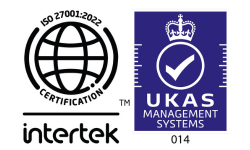What is Unlawful Discrimination?

Unlawful discrimination occurs when an individual or group is treated unfairly due to personal characteristics such as age, gender, race, religion, or disability. Discrimination laws in the UK are governed by the Equality Act 2010, which sets out clear protections against unfair treatment. For employers, it’s important to understand and comply with these laws to maintain a fair and legal workplace environment. Explore the different types of unlawful discrimination, the impact on businesses, and the steps employers can take to prevent and address it below.
Types of Unlawful Discrimination
The Equality Act 2010 identifies several types of discrimination, including direct discrimination, indirect discrimination, harassment, and victimisation. Each type has distinct features but shares the same goal: to protect individuals from being treated unjustly due to personal attributes known as ‘protected characteristics’.
These characteristics include:
- Age
- Disability
- Gender reassignment
- Marriage and civil partnership
- Pregnancy and maternity
- Race
- Religion or belief
- Sex
- Sexual orientation
Direct Discrimination
This occurs when someone is treated less favourably than others due to a protected characteristic. For example, refusing to promote a qualified candidate solely because of their race would be considered direct discrimination. This type of discrimination is straightforward, as it involves unequal treatment based on a specific attribute.
Indirect Discrimination
Indirect discrimination happens when a policy, rule, or practice applies to everyone but disproportionately affects people with a particular protected characteristic. For instance, implementing a company-wide requirement that all employees must work full-time could indirectly discriminate against women who may need part-time work due to childcare responsibilities. Indirect discrimination can be harder to identify because it often arises from practices that appear neutral on the surface.
Harassment
Harassment is unwanted behaviour related to a protected characteristic that violates an individual’s dignity or creates an intimidating, hostile, or offensive environment. Examples include making offensive jokes about someone’s religion or displaying derogatory images in the workplace. Harassment can significantly damage employee morale and productivity, making it essential for employers to have clear policies to prevent it.
Victimisation
Victimisation occurs when someone is treated badly because they have made or supported a complaint of discrimination. For instance, an employee who files a complaint about gender discrimination may face unfair treatment from their employer or colleagues in retaliation. Victimisation is unlawful and can deter employees from raising legitimate concerns, so employers must ensure that such behaviour is not tolerated.
The Impact of Unlawful Discrimination on Businesses
Unlawful discrimination in the workplace can lead to severe consequences for both employees and employers. When discrimination occurs, it not only affects the targeted individual but also damages the overall work environment. Here’s how:
Legal Consequences
Employers who fail to prevent discrimination risk facing legal action. Discrimination claims can be taken to an employment tribunal, which could result in significant financial penalties for the business. Aside from the monetary cost, being involved in a discrimination lawsuit can damage a company’s reputation, making it harder to attract and retain talent.
Reduced Employee Morale and Productivity
When employees experience or witness discrimination, it can lead to lower morale, decreased job satisfaction, and reduced productivity. A hostile or unfair working environment can cause stress, absenteeism, and high turnover rates. Employers have a responsibility to create a positive work culture where employees feel valued and respected.
Reputation Damage
Businesses that do not address unlawful discrimination risk damaging their reputation. Negative publicity from discrimination cases can harm customer relationships and deter potential clients. In today’s socially conscious market, consumers and partners are more likely to support businesses that demonstrate a commitment to equality and fair treatment.
Missed Opportunities
Failing to create an inclusive work environment can mean missing out on the diverse skills and perspectives that come from a varied workforce. Discrimination limits the potential for innovation, creativity, and growth. Employers who actively promote equality and inclusivity can benefit from a broader range of ideas and experiences that drive business success.
Employer Responsibilities Under the Equality Act 2010
Employers in the UK have a legal duty to prevent unlawful discrimination in the workplace. Under the Equality Act 2010, employers must ensure that their policies and practices do not disadvantage employees or job applicants based on protected characteristics. Here are some key responsibilities for employers:
Equal Opportunities Policies
All businesses should have an equal opportunities policy that outlines the company’s commitment to fairness and the actions it will take to prevent discrimination. This policy should cover recruitment, training, promotions, and day-to-day workplace interactions. Employees must be made aware of this policy and receive training on their responsibilities under the Equality Act 2010.
Monitoring and Reviewing Practices
Employers should regularly review their workplace policies and practices to ensure they do not unintentionally discriminate against individuals with protected characteristics. For example, when introducing a new work arrangement, employers should assess whether the policy could disproportionately affect certain groups, such as part-time workers or those with disabilities.
Providing Reasonable Adjustments
Employers have a duty to provide reasonable adjustments to accommodate employees with disabilities. This could include modifying the physical workspace, offering flexible working hours, or providing assistive technology. Failure to make reasonable adjustments can result in disability discrimination claims.
Responding to Complaints
When an employee raises a concern about discrimination, it is essential to handle the complaint promptly and thoroughly. Employers should have clear procedures for investigating and resolving discrimination complaints. Any form of victimisation against employees who make complaints must be strictly prohibited.
How to Prevent Unlawful Discrimination in the Workplace
Preventing discrimination requires proactive efforts from employers. It is not enough to react to discrimination when it occurs; employers must foster a culture of equality and respect from the outset. Here are practical steps to minimise the risk of unlawful discrimination:
Training and Education
Provide regular training for all employees on discrimination, diversity, and inclusion. This training should educate staff about the different types of discrimination, how to recognise them, and the importance of respecting everyone’s differences. Managers should receive additional training on how to handle complaints and create inclusive teams.
Clear Reporting Mechanisms
Ensure that employees know how to report discrimination and that they feel safe doing so. A clear, confidential reporting process should be in place, and employees must be confident that their complaints will be taken seriously and handled fairly. Transparency in addressing complaints helps build trust and discourages discriminatory behaviour.
Fostering an Inclusive Culture
Creating an inclusive workplace culture goes beyond compliance with the law. Encourage open communication, promote respect for differences, and celebrate diversity. When employees feel valued and included, they are more likely to perform at their best, reducing the likelihood of discrimination.
Regular Audits and Surveys
Conduct regular audits of workplace policies and practices to identify any potential areas of discrimination. Employee surveys can also provide valuable insights into the workplace culture and highlight any issues that need addressing. Employers should act on feedback and make changes where necessary to ensure equality.
Legal Remedies for Employees Facing Unlawful Discrimination
Employees who believe they have been discriminated against have the right to seek legal remedies under the Equality Act 2010. There are several options available:
Filing a Grievance: Employees can file a formal grievance with their employer to report incidents of discrimination. This should be the first step in resolving the issue internally. Employers are required to investigate and respond to the grievance in a timely manner.
Making a Tribunal Claim: If the grievance process does not lead to a satisfactory resolution, employees can take their case to an employment tribunal. Tribunal claims must typically be made within three months of the discriminatory act. The tribunal can award compensation to employees who successfully prove that discrimination occurred.
Seeking Mediation or Conciliation: Mediation and conciliation services can help resolve discrimination disputes without going to court. These services provide an independent mediator who facilitates discussions between the employee and employer to reach an agreement. Mediation can be a less confrontational and quicker way to resolve disputes.
Unlawful discrimination is not only illegal but harmful to businesses and employees alike. By implementing these policies, providing training, and fostering an environment of respect, employers can prevent discrimination and ensure a positive, productive workplace for all employees. Addressing discrimination effectively benefits businesses by improving morale, productivity, and reputation, making it an essential component of good business practice. Reach out to our HR consultancy team today to find out more information about how HR software can help your business face challenges like these.
















